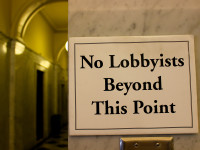The Standing Committee on Canadian Heritage has conducted several weeks of hearings as part of its study on Remuneration Models for Artists and Creative Industries. While the copyright review is the responsibility of the Standing Committee on Industry, Science and Technology, the heritage committee was asked to conduct a study to help inform its work. The mandate was described in the following motion:
Post Tagged with: "canadian heritage"
Against Copyright Balance: Canadian Heritage Officials Say It’s Time “To Move Beyond the Notion of Balance”
As the Standing Committee on Industry, Science and Technology (INDU) prepares for its first copyright review hearing next week featuring various representatives from the education community, MPs will regularly hear witnesses talk about the “copyright balance.” For Canadian copyright policy, balance has long been a foundational goal, regularly reflected in the views of both government and the courts. Yet according to a document obtained under the Access to Information Act, last fall officials at the Ministry of Canadian Heritage advised Minister Melanie Joly to abandon the emphasis on a copyright balance.
Government Rejects Call for an Internet Tax: “Conflicts With Principle of Affordable Access”
The federal government yesterday released its response to the Standing Committee on Canadian Heritage report on local media released last June. The most controversial recommendation in that report – one swiftly rejected by Prime Minister Trudeau – was a call for a new Internet tax to help fund Canadian media and the creation of Cancon. As I wrote at the time, the proposal is a terrible idea that runs counter to important policy objectives of fostering affordable network access for all Canadians.
The government response, signed by Ministers Joly, Bains, and Morneau, rightly notes that “access to affordable broadband Internet, particularly in rural and remote regions, is essential to the participation of the Canadians in the digital economy.” In light of this policy priority, the government firmly rejects the Internet tax proposal, grounding its decision in the principle of affordable access:
Why We Need the CBC as an Ad-Free Digital News Competitor
The Standing Committee on Canadian Heritage wrapped up its lengthy hearing on the media and local news last week with appearances from Facebook, Google, and the Globe and Mail (I appeared before the committee last month and my opening comments and review of the discussion that followed can be found here). The high profile witnesses sparked another round of debate over the ongoing troubles in the newspaper industry with intensifying criticism of the CBC’s emphasis on digital news services, including a new opinion section and its acceptance of digital advertising, which are both viewed as direct competition for the struggling private sector alternatives.
For example, Globe and Mail publisher Phillip Crawley told the committee that the CBC is the Globe’s largest competitor in the digital ad space. He expressed concern over the inclusion of opinion, which is viewed as further encroaching on newspapers’ turf, and pointed to the BBC’s approach, which faces government-backed restrictions on accepting digital advertising on its domestic websites. The CBC criticism has emerged as a common theme for several years with many media organizations and commentators arguing that CBC should not be in the business of competing with newspapers.
The CBC responded on Monday with a letter to the committee titled “limiting access to the digital public space is not in the public interest.” The CBC argued that given the struggles of smaller papers, its online presence is more important than ever. Further, it tried to downplay the significance of its digital advertising revenue, arguing that it amounts to $25 million annually, a very small share of the total digital advertising expenditures in Canada.











